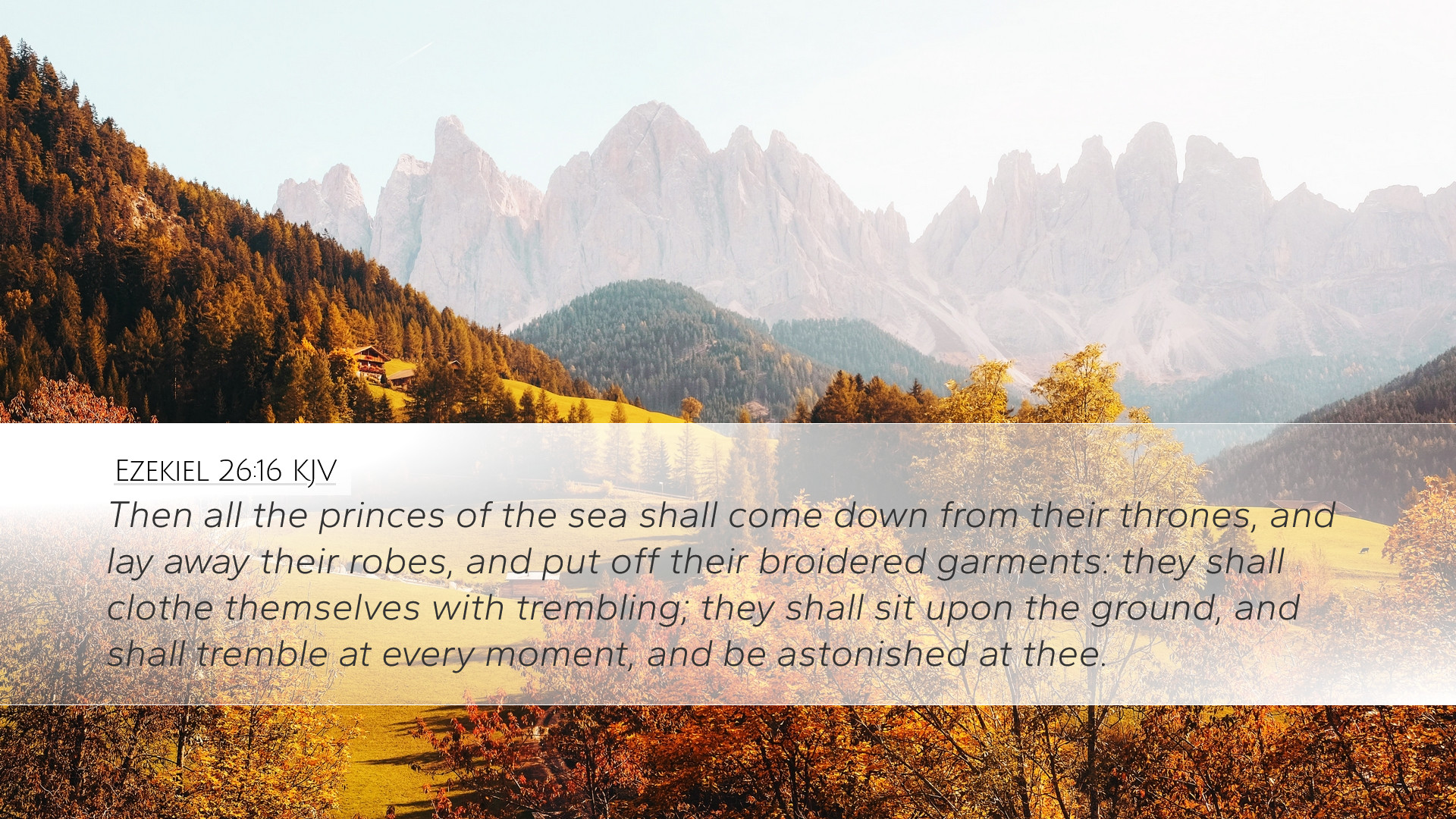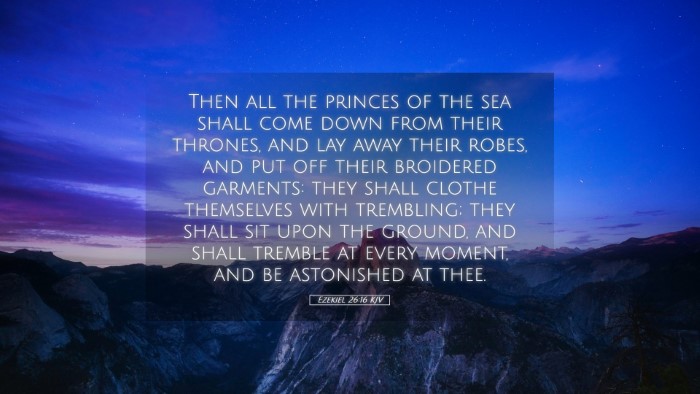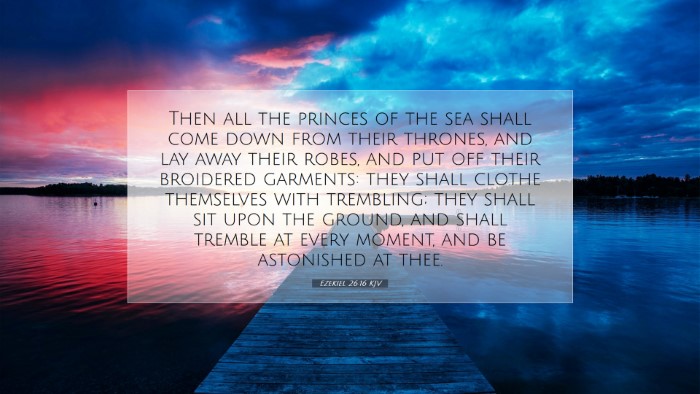Ezekiel 26:16 Commentary
Bible Verse: "Then all the princes of the sea shall come down from their thrones, and lay away their robes, and put off their broidered garments: they shall clothe themselves with trembling; they shall sit upon the ground, and shall tremble at every moment, and be astonished at thee."
Contextual Analysis
The verse Ezekiel 26:16 is part of a larger prophecy against Tyre, a city noted for its wealth and maritime commerce. The Lord through His prophet Ezekiel is announcing the impending judgment on Tyre, which will lead to a significant shift in power dynamics within the region.
Theological Insights
In this passage, the imagery of princes descending from their thrones symbolizes a loss of power and dignity. This is highlighted in several commentaries:
- Matthew Henry: He notes that the removal of the rulers’ robes indicates a transition from authority to humiliation. The princes of the sea, representing the merchants and leaders dependent on Tyre, will be stripped of their pomp and will find themselves in a state of fear and astonishment.
- Albert Barnes: Barnes emphasizes the comprehensive impact of God's judgment not only on Tyre but also on its allies and associates. The trembling and astonishment reflect the recognition of their deep vulnerability and the irreversible power of God’s judgment.
- Adam Clarke: Clarke offers a detailed examination of the scene described. He interprets the action of laying aside their rich garments as a symbolic act of mourning and acknowledgment of the gravity of their situation, reinforcing the idea that human pride is fragile before divine sovereignty.
Symbolism of Robes and Thrones
The removal of royal robes signifies a transition from honor to disgrace. This change represents more than physical attire; it designates a spiritual and relational aspect. The thrones, being seats of power, emphasize the futility of earthly authority in the face of divine decree:
- Royalty Stripped: The act serves as a metaphor for the stripping away of pride and arrogance common in powerful leaders.
- Dressed in Trembling: The trembling indicates an emotional state characterized by fear and awe, an appropriate response before the holiness and might of God.
The Human Response to Divine Judgment
There is a profound psychological and emotional dimension at play in this prophecy. The trembling and astonishment are indicative of how humanity often reacts to the unfolding of God's plans. The response of these leaders illustrates:
- Acknowledgment of Power: The princes realize that their power, once perceived as invincible, is subject to the authority of God.
- Desperation and Fear: The vivid imagery used in this verse amplifies a sense of despair that comes with the realization of impending judgment.
Implications for Believers
For modern believers, the commentary on Ezekiel 26:16 serves as a reminder of God's ultimate authority over human affairs. It provides valuable lessons on humility and dependence on God:
- Humility Before God: Leaders and individuals alike are reminded of the need for humility in the sight of God, recognizing that all power and position are granted by Him.
- Response to Divine Warning: The passage speaks to the importance of heeding divine warnings to prevent judgment, a theme that resonates throughout the biblical narrative.
Conclusion
Ezekiel 26:16 encapsulates a powerful message regarding the transient nature of human power in the face of divine sovereignty. The pronouncement against Tyre and the imagery of the sea princes being humbled serves as a sobering reminder that all earthly glory is temporary. For pastors, students, theologians, and scholars, this passage calls for both reflection and action—recognizing our dependence on God, leading with humility, and staying vigilant to His Word.


